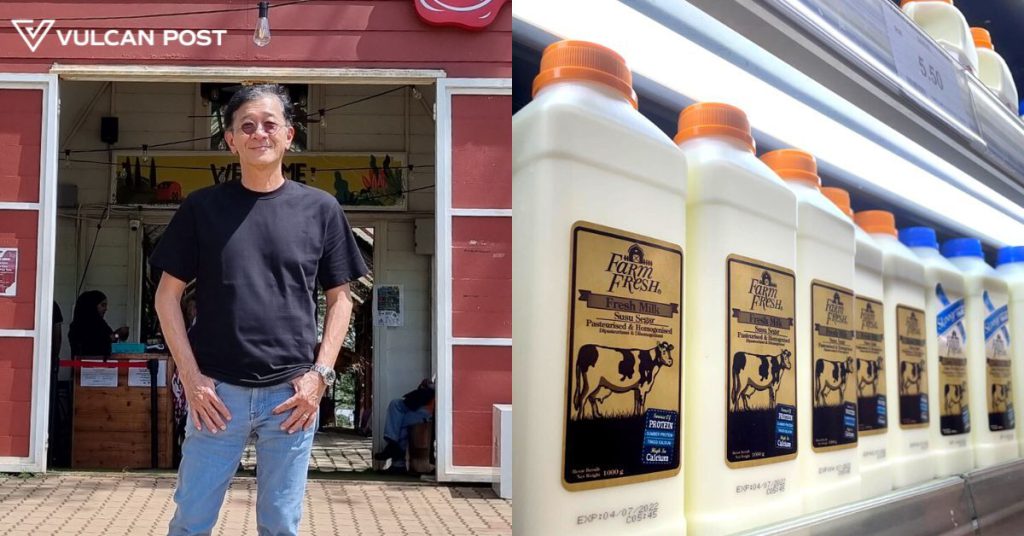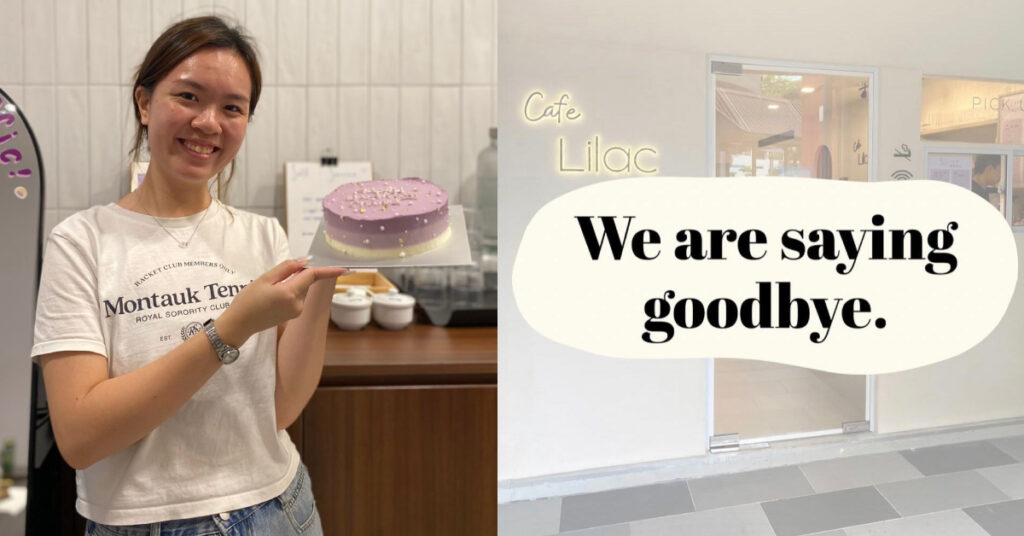Earlier this month, we had the opportunity to sit down with Loi Tuan Ee, the founder and CEO of Farm Fresh, a publicly listed dairy company in Malaysia.
During our lunch, Loi shared about his entrepreneurial journey and also opened up about some of the challenges he’s faced during his entrepreneurial journey.
Here are some of the biggest obstacles the CEO has encountered, and the lessons he learnt from each trial.
1. Overestimating his familiarity with his work environment
Years ago, a bull had kicked Loi, cracking his ribs in the process. Thankfully, before more damage could be done, Loi was able to ward the bull off with a stick and escape behind the electric fences.
But how did the founder of Farm Fresh even end up in such a precarious situation? It wasn’t like he didn’t know bulls could be dangerous.

Well, it might’ve been out of his love for the animal. Having raised the bull since it was a calf, Loi had thought that it wouldn’t charge him. Alas, animals are animals, and bulls can be aggressively territorial.
This might sound like a very industry-specific problem, but these sorts of problems can arise across many other fields.
Plus, it wasn’t like Loi wasn’t familiar with his work environment either. He’d done a lot of reading, and it’s even said that he has a tall stack of books by his bed. “If I studied like that when I was young, I’d probably be a lecturer,” Loi mused.
More than just reading those books, though, applying the lessons learnt is what matters. Heeding warnings attentively and being cautious of occupational hazards are key.
As a business owner, you’ll also want to make sure those workplace dangers are mitigated. The silver lining of Loi’s case was that he had installed electric fencing, but had that not been the case, the results of that incident might’ve been worse.
2. Having a high burn rate
Loi revealed that from its launch in 2009 up until 2012, the company had been bleeding. The burn rate had been high, and the gestation period had been arduous.
Dictionary time: Burn rate is the rate at which a company is losing money. Measured on a monthly basis, it’s calculated by subtracting operating expenses from revenue of a company. The gestation period of business is the pre-traction stage before the company starts to showcase results.
In 2013, though, the dairy company finally started to break even.

What changed? In 2012, an accountant who’s now referred to as Loi’s right-hand man had come in.
“He got a shock,” Loi remembered. “[He thought], ‘the company is losing money ah? Si liao loh’.”
The accountant, Abdullah, had left a stable, profitable logistics company to join Farm Fresh, so it had been concerning to see that the dairy company was in the red.
Loi himself was panicking. He had his family to feed as well as his staff and their families.
Thankfully, though, the company had gotten itself on track to get backing from Khazanah Nasional, the sovereign wealth fund of Malaysia’s government, in 2014.
But beyond just fundraising, the one thing that kept Loi going in those early days was believing in the product that he had and in what the company was doing as a whole.
“It comes with believing in what you’re doing and persevering through the pain,” Loi shared.
3. Finding the right person for the role
Undoubtedly, most companies would have experienced some bad hires or employees that just didn’t fit the bill in one way or another.
For Farm Fresh, the role that they were struggling to fill was the CFO position.
Not giving up on the search, though, the current group CFO, Mohd Khairul Mat Hassan, had come along in 2020. “Khairul is really, really a top-notch CFO,” Loi praised.
To Loi, this was critical for the company especially as it was going public.
He didn’t want to get into the specifics of why previous hires hadn’t made the cut, out of respect for them.
But the CEO had mentioned that although he’s the kind who doesn’t mind mistakes much, he cannot tolerate bad attitudes and lack of integrity.
4. Balancing quality over quantity
During my first visit to The Acre, I made a comment about its menu, saying that it isn’t exactly extensive, as it only features a handful of mains.
Turns out, this is an intentional move from Loi and his team.
In the early days, before the official launch, The Acre had attempted to have a lengthy menu, offering a wide variety of dishes. “We were so naïve,” Loi expressed.
Due to the diversity of dishes, the kitchen had been on the brink of collapse. After that experience, the team realised they had to simplify the menu.

This move is applicable to any F&B entrepreneurs, but it’s also a representation of how quality can trump quantity. Mastering a few products and being able to perfect the process of making it can be critical to ensuring a smooth and efficient assembly line.
5. Keeping the team happy through high growth rates
You might be wondering—in what universe is growth a bad thing?
While expanding is not a bad thing at all, internal challenges can also arise due to it, especially at the rate that Farm Fresh was booming.
“At the rate that we are growing, we also have to be fair to the team, in the sense that you are putting a toll on them,” Loi said.
Yet, when you bring in more talent, the founding team might feel disgruntled.
“We have to let them know, it’s not like I don’t appreciate the founding team, I’m not saying you guys are no good,” he said.
These growing pains are something that CEOs must endure and overcome. For Loi, the solutions come in the form of hiring the right people as well as maintaining a company culture that reflects Farm Fresh’s values and mission.
It’s also important to practice some empathy for staff members who are also struggling with the rapid growth, and ensure there is proper communication within the company.










